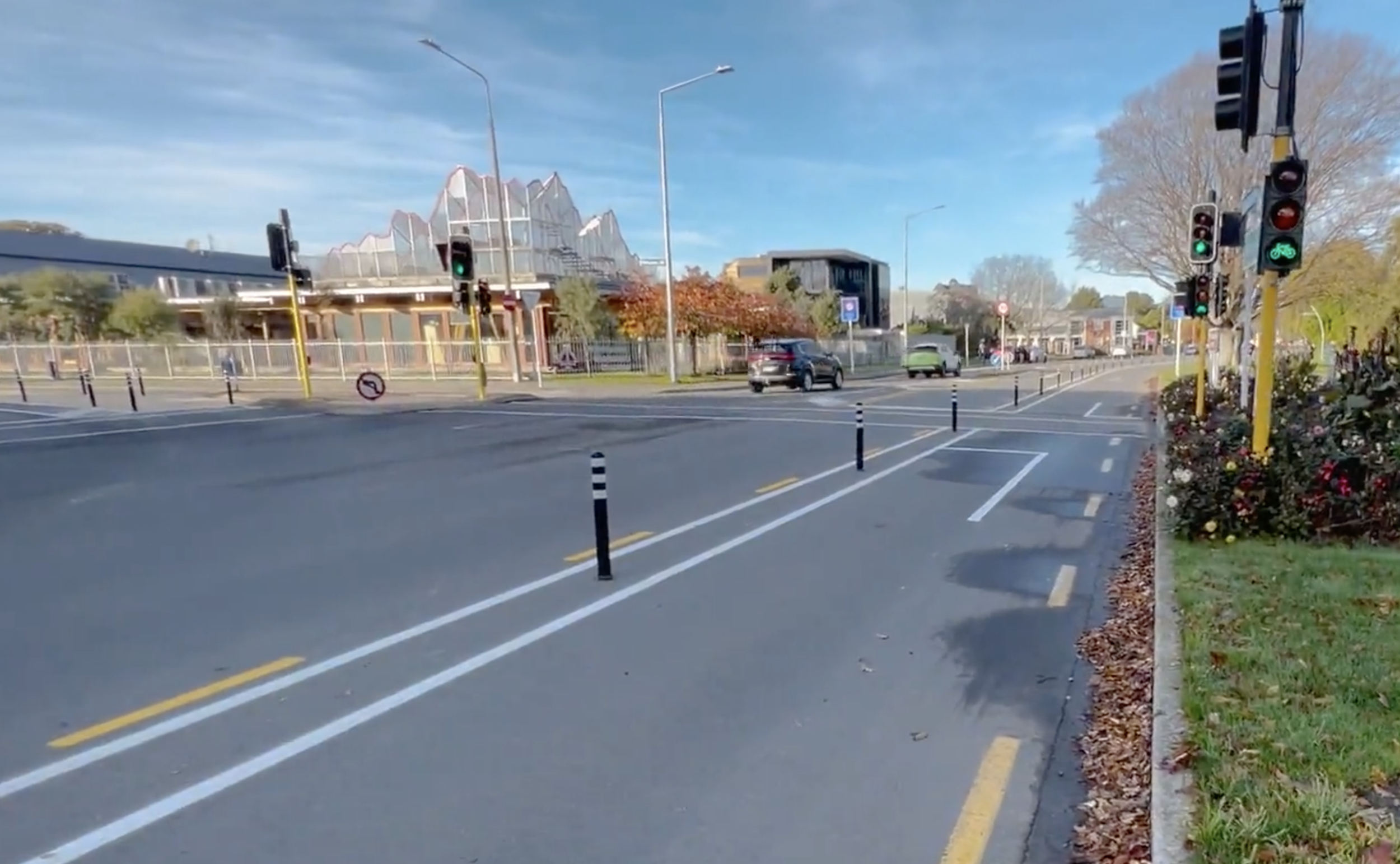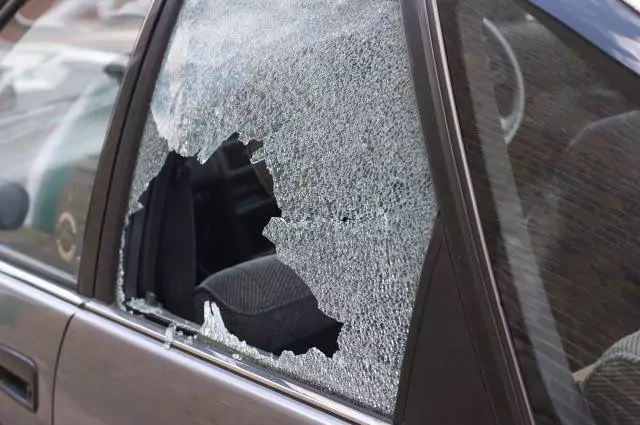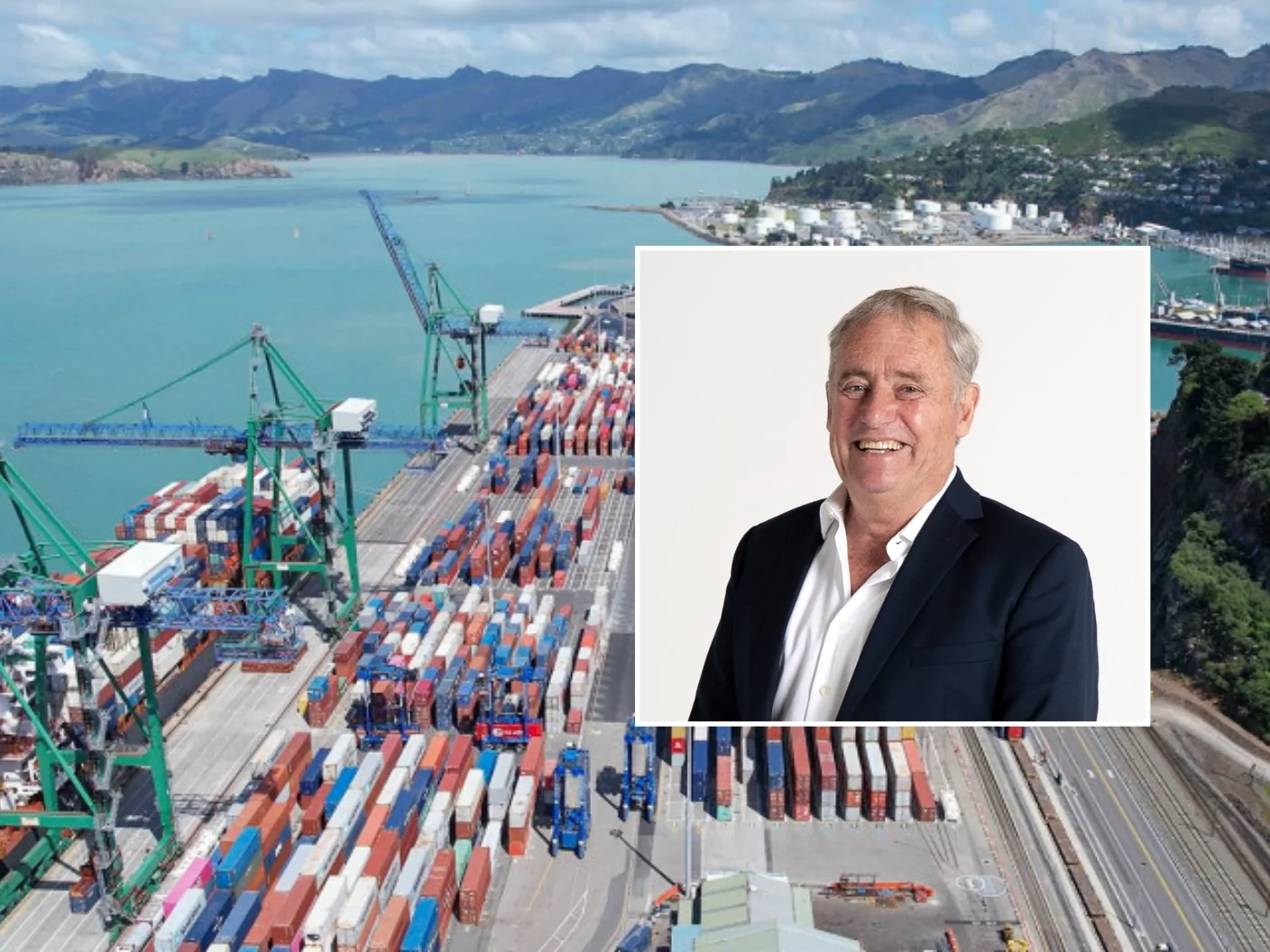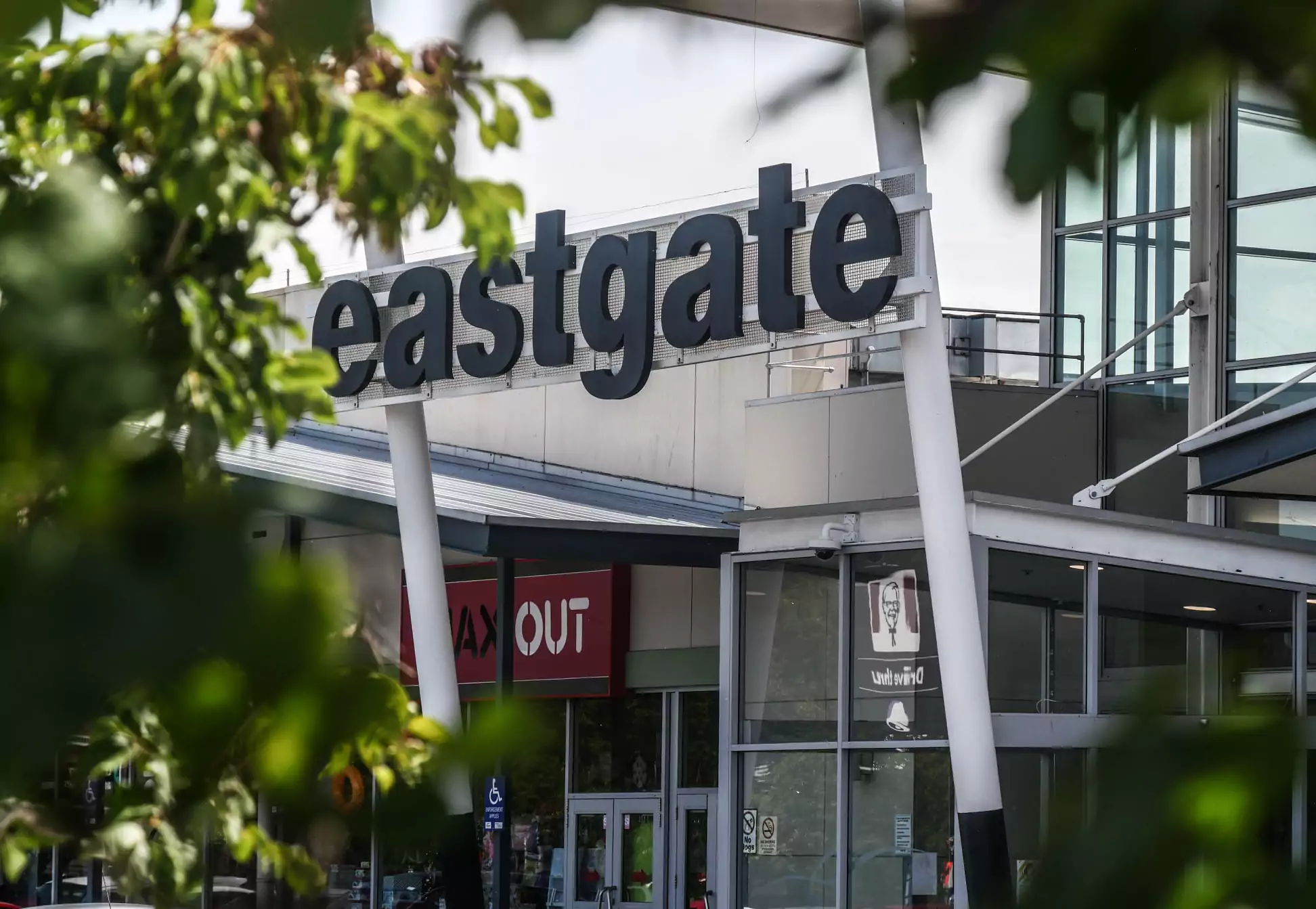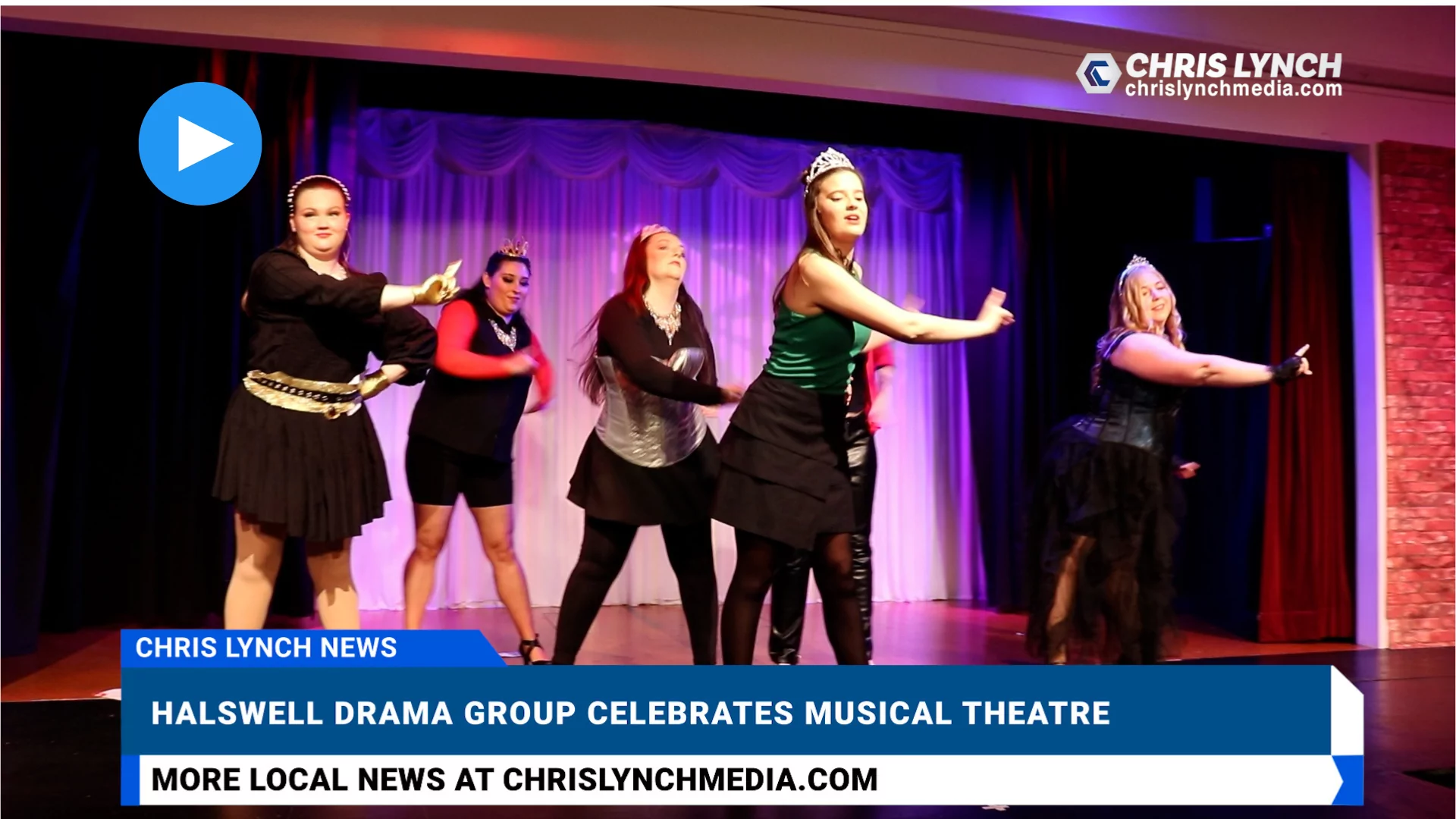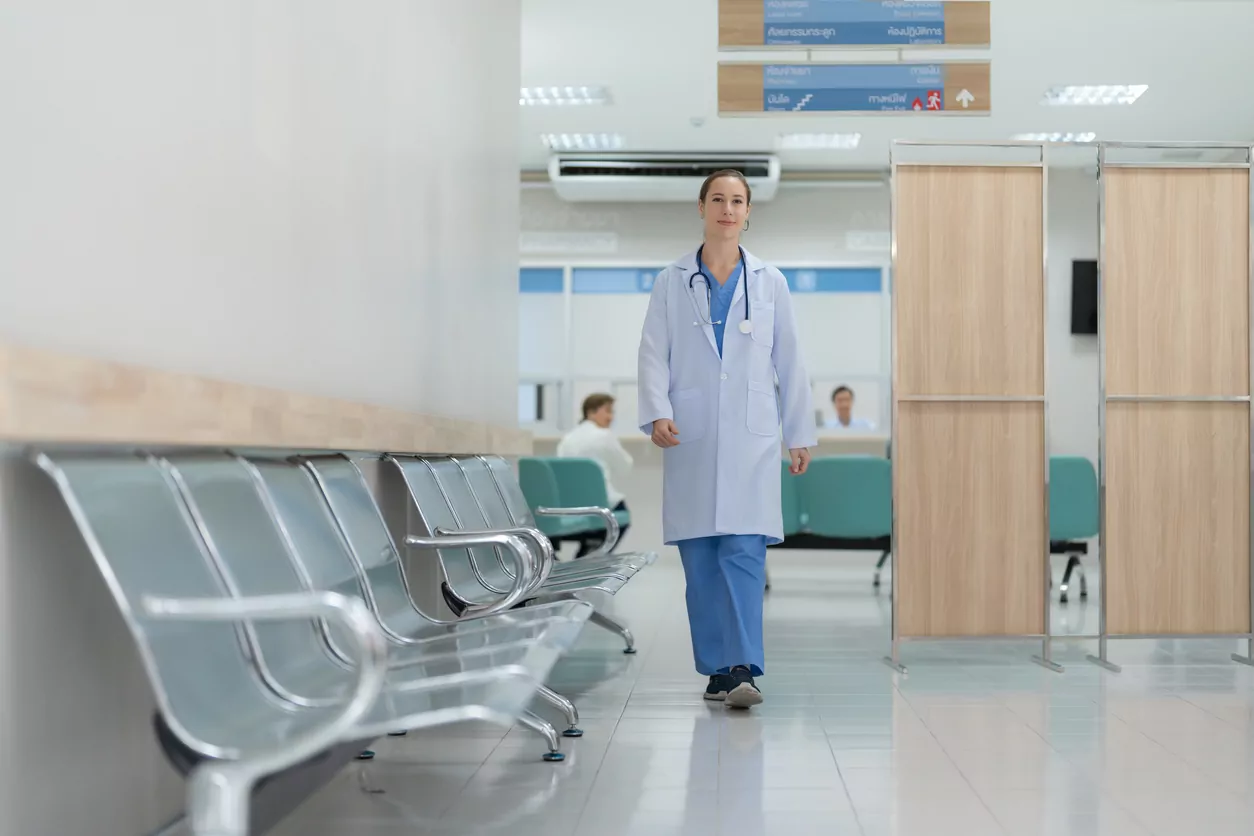Passionate members of the public have voiced their opinions regarding the contentious cycleway on Park Terrace in Christchurch’s central city.
The cycleway changes on both Rolleston Avenue and Park Terrace are part of the wider project to install “safety improvements during the Canterbury Museum redevelopment.”
While the changes to Rolleston Ave have generally been met with acceptance, the decision by council staff to replace a car lane with a cycleway on Park Terrace, adjacent to an existing shared cycling and pedestrian lane, has ignited opposition among the community.
Despite being initially described as “temporary” a staff report recommended that the cycleway remains in place for the entire five-year duration of the project.
This decision has fuelled frustration among some locals who questioned the transparency of the process.
The council’s decision to install a bus stop in the middle of the road of Park Terrace also attracted criticism.
Anthony Gough, a developer, expressed his disapproval of the bus stop placement, describing it as “absolutely stupid” during a meeting with the Waipapa Papanui-Innes-Central Community Board.
Andrew Marsh, a concerned resident, highlighted the issues arising from the narrowed intersection between Kilmore Street and Park Terrace, which had “created a bottleneck and seemingly illogical traffic flow.”
Resident Greg Urquhart said “to me, it’s more about the governance and the abuse of delegate authority and Council staff being intentionally sneaky and underhanded while pursuing their own agenda with ratepayers money.
“And this instance, a temporary project was done with little or no regardless, in terms of the roles of Council.
These Council staff, in my view, overstepped the mandate, and obviously used inappropriate authority to put these ideologically driven traffic changes in place.”
However, Greg was silenced by the chair and told to refrain from criticising the staff.
Undeterred, he emphasised that the issue was not about the merits of the cycleways themselves.
“I don’t think it’s about whether the cycleways are good or bad. To me it’s about how the process was circumnavigated.”
Resident Rob Willy said “I run into a lot of elderly people who will not drive in the city.
“There are people that I know in Hornby, who aren’t elderly people, who will not drive in the city because of this nonsense.
“How does it take 135 pages to provide the information?”
He also pointed to a comment made by a staff member in the latest report.
“It had nothing to do with anything except the staff are feeling sorry for themselves because they get criticised.”
He said “one thing that I noticed, is that if you’re a car driver, you’re almost treated as a bad guy.”
Park Terrace resident Michelle Leishman told the board the first she knew about the changes was in May.
“We had a letter that came through to explain that a temporary measure was going to be taking place.
“So in my mind, temporary is a short term thing. I didn’t appreciate that temporary would be a five year period of time.
“I don’t believe in five years time, that anything will change back. I think that is just a way of making this happen without the normal regulations that would take place.”
Resident Mary O’Leary said “it is our jewel in the crown to park, the Botanical Gardens, the Christ College, the Art Centre. We have in one foul swoop destroyed Christchurch and its most beautiful asset and I tell you, I mean it almost brings tears to my eyes.”
Former Park Terrace resident Susan Thorpe said her submission was not about the merits of biking “which we all know is the most admirable activity in every respect.
It was about the hijacking of a democratic process by undoubtedly “well meaning, but ideological staff planners” during the makeover of Canterbury Museum.
“They’ve possibly unwittingly subverted the process, consulting the public after they have imposed their favourite solution.
This in itself should be the subject for a judicial review.”
Sophie Burtt said “I feel very strongly that this particular cycleway, whilst relatively controversial to date, is an important initiative from Council as we continue to enable and encourage healthy changes in behaviour and future proof our city for our next generations.”
I support the cycleway because every street in our city has a distinctive role to play. And it’s not always about moving cars.”
Stu Waddel, who owns a bike store said the separate cycleway had increased cycle use.
“The issue with cars is the speed of travel on Park Terrace, which adversely impacts all non vehicle users and their safe access into and around Salisbury Street in particular.”
Kari Hunter said “everybody benefits when we make the roads safe. There’s less risk of harm to cyclists, there’s less of the air pollution that actually kills more people than collisions do.
“This is a human rights issue amongst everything else, as well as making it safer for individual cyclists. The basic direction of cutting our emissions, by every way we can is about saving lives.
“What happens in the next three, four or five years will make the difference for millions, hundreds of millions, maybe even billions of lives. That’s a pretty major human rights issue.”
Hunter also believed having the cycling lane was about “honouring the Treaty.”
Fiona Bennetts said “with regards to the bus stop, stopping in the lane is fine. I used to get to 17 all the time. And it hardly ever stops. It doesn’t really inconvenience people.”
Rosa Shore from Generation Zero said “the world is in flux with issues such as climate change, biodiversity and habitat loss, social and cultural issues both present and historic, and for the most part, not receiving the attention that they need as a young person living in this time.
“I’m sure I speak for many of us when I say that it is an unnerving, frustrating and often very discouraging place to be and this may seem irrelevant in the context of a relatively short stretch of cycleway, but these topics are inherently connected.
Increased active transport is the way of the future.”
Councillor Pauline Cotter said “one submitters stated the Christchurch is a Victorian city and wants it to remain so. But no not anymore. Christchurch is a 21st century climate smart city. This is where we’re going. It’s where we have to be. We no longer have a Victorian city.”
We’re no longer a farming town with an expectation of wide streets and parking right outside of our destination. That’s a 1950s scenario, we’re a 21st century city.”
Councillor Victoria Henstock said “sufficient questions have been raised by submitters to suggest that there’s a conformational bias.
“There’s no real surprise about the outcome of the trial period and the safety audit and the staff recommendations.
“The big question is – does this make sense? And for me, it’s an emphatic no. If you’re blinded by the cycling rhetoric, then you will think otherwise, but a word of caution is what is the problem we’re trying to solve?
“Engagement after the fact on something like this makes absolutely no sense to me, it doesn’t look good, and it suggests, as the public have indicated, that we are disingenuous with our engagement.
“We’ve been told by staff today the Park Terrace (changes) are not directly related to the museum redevelopment, so it really does beg the question, why were these works done? Under a temporary management plan? And so no, I don’t believe that we have adopted a fair and transparent process for the public.”
Community Board member Ali Jones said “remember the child’s toy that has different shapes and you’ve got to put a certain shaped block into a certain hole? Well, that’s what we’ve got here. The options suggested by the experts are designed to fit a certain hole because that is what they’ve been asked to do.
“The activity along Park Terrace is anxiety inducing. If you’ve been down there you will see that we do not need an on-road cycle lane. There is enough room for everyone, with the pathway on the side of Park Terrace running the length of Park Terrace.”
Waipapa Papanui-Innes-Central Community Board voted to make a recommendation to council to remove the bus stop from being on the road, to pushing it back to where most normal bus stops are located – off the road.
The Board also voted to make a recommendation to councillors to agree with staff to keep the “temporary” cycleways for five years.
Ali Jones and Victoria Henstock voted against that recommendation.
